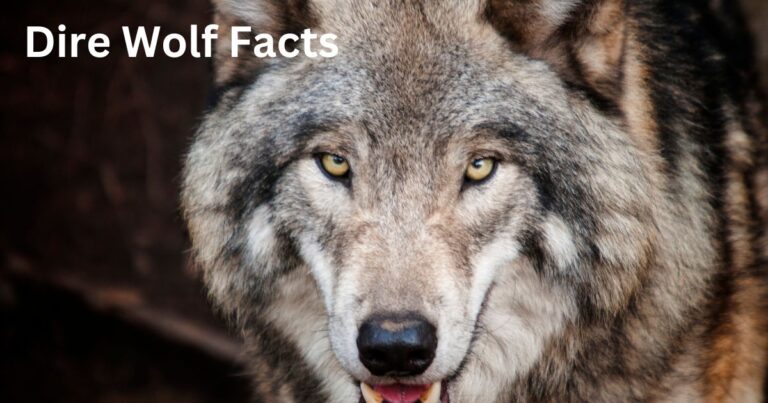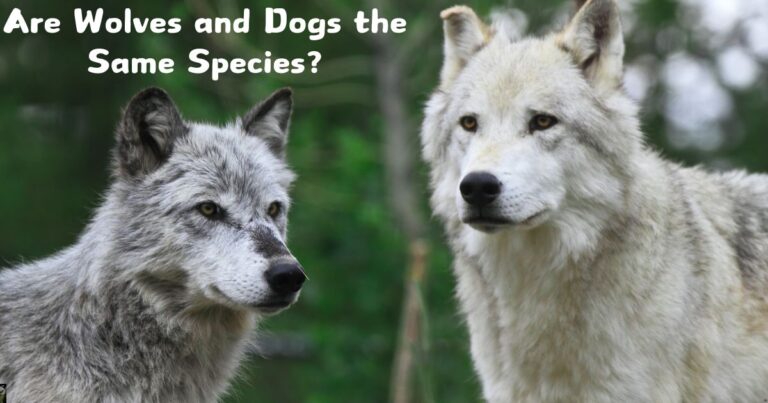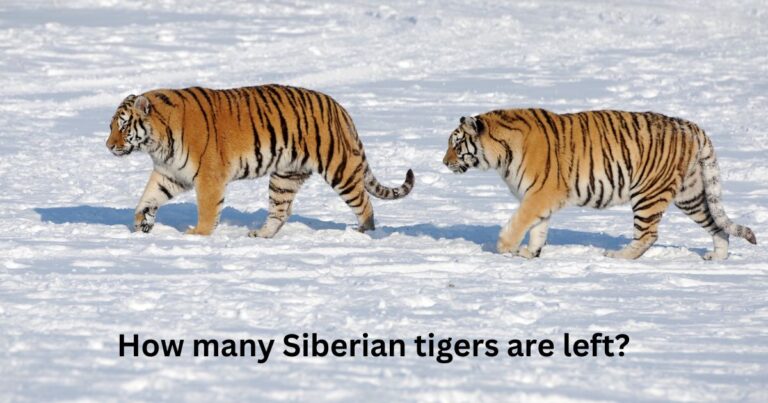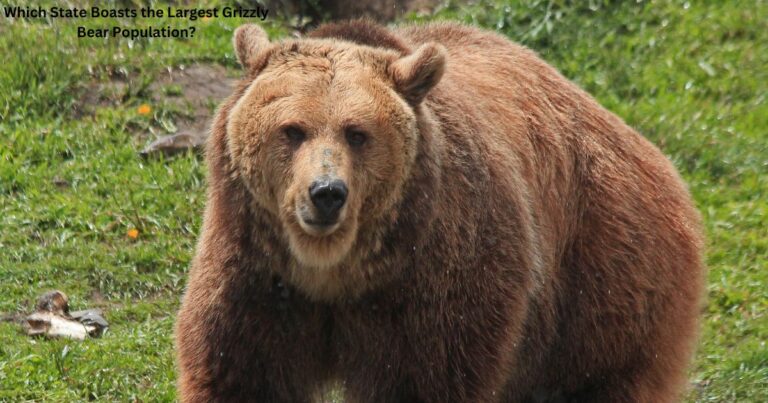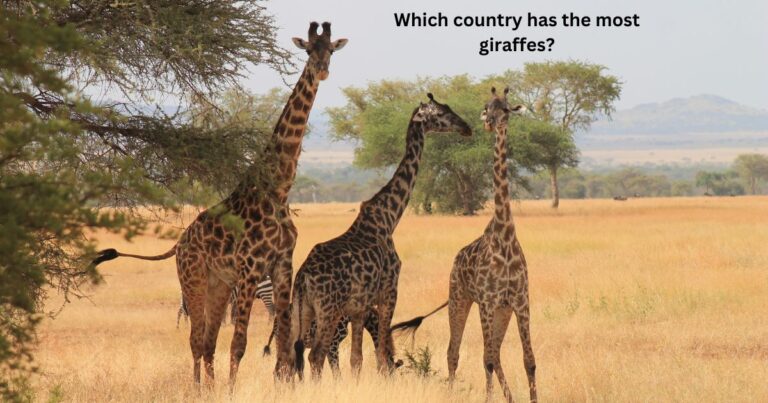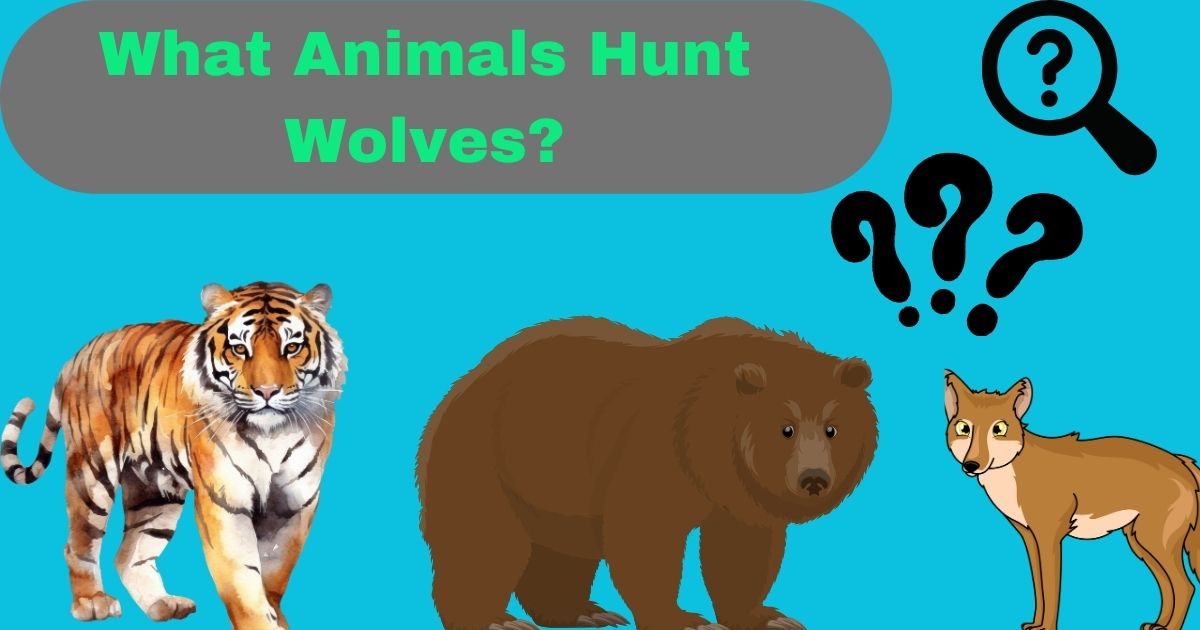
Introduction
Wolves are fascinating creatures and frequently thought of as apex predators, meaning they sit down at the top of the food chain.
However, I’ve determined that notwithstanding their dominant function inside the wild, wolves nonetheless face threats from sure animals.
These predators don’t frequently actively hunt wolves for meals, however they do attack beneath unique occasions, like whilst defending territory or competing for prey.
In this article, I’ll explore what animals hunt wolves and the situations that lead to those encounters.
Key Takeaways
- Wolves are apex predators, however I’ve found out they still face threats from positive animals.
- I’ve observed that grizzly bears can kill wolves at some point of territorial or food disputes.
- Cougars may additionally attack wolves once they’re competing for prey, which I located exciting.
- In regions in which tigers and wolves coexist, tigers can once in a while prey on wolves.
- Wolves, I noticed, frequently avoid direct war with larger predators.
- From what I’ve seen, wolves from time to time combat and kill each different over territory.
- I’ve realized that human activity affects wolf ecosystems and impacts their survival.
- Lone wolves are lots more prone to attacks from large predators, something I observed via research.
Do Wolves Have Natural Predators?
While wolves are skilled hunters, I’ve learned that they are not absolutely loose from hazard. In the wild, certain animals can project or maybe prey on wolves, mainly whilst meals is scarce or territories overlap.
Key Animals That Prey on Wolves
| Animal | Reason for Preying on Wolves |
|---|---|
| Grizzly Bears | Kill wolves during territorial disputes or when wolves attempt to steal their food. |
| Cougars | Rarely attack wolves during competition for prey or in defense of their territory. |
| Tigers | Occasionally prey on wolves in regions where they coexist, overpowering lone wolves. |
| Other Wolves | Territorial disputes between wolf packs can lead to deadly confrontations. |
Grizzly Bears
From my studies, I’ve located that grizzly bears are one of the few animals capable of killing wolves. They generally do this in the course of territorial disputes or when wolves try to thieve their meals, instead of for predation.
Cougars
Although uncommon, cougars (or mountain lions) were known to assault and kill wolves. These assaults normally take place when each species are competing for the equal prey, or when wolves stray into cougar territory.
Tigers
In regions wherein wolves and tigers live collectively, like components of Asia, tigers can on occasion prey on wolves. Tigers are an awful lot larger and more potent, and I’ve found that they can effortlessly overpower a lone wolf or maybe a small p.C.
Other Wolves
Interestingly, wolves are also at danger from their personal kind. Territorial disputes between different wolf packs can cause deadly confrontations.
What Animal Can Kill a Wolf within the Wild?

What Animal Can Kill a Wolf within the Wild?
While wolves are sturdy, I’ve determined that a few animals can kill them in the right instances.
Grizzly Bears vs. Wolves: A Fierce Rivalry
Grizzly bears and wolves frequently compete for the same prey, like elk and deer. I’ve learned that after this occurs, bears can also assault wolf packs to pressure them far from food sources. Wolves might also fight lower back, however a huge grizzly bear can normally overpower them with its sheer size and electricity.
Cougars: Silent Predators of Wolves
Cougars are professional ambush predators. From what I’ve examined, they don’t generally target wolves however will kill them if there’s competition over meals or territory. Though uncommon, these encounters can happen while resources are scarce.
Do Tigers Hunt Wolves in Their Habitat?
In elements of Siberia, in which wolves and tigers coexist, I’ve located that tigers have been known to seek wolves.
These massive cats are solitary hunters, and their size gives them a bonus over wolves. However, such encounters are infrequent, as wolves generally tend to keep away from regions in which tigers are dominant.
Can Humans Influence Predation on Wolves?
Humans have had a massive effect on the ecosystems in which wolves stay, and I agree with this has not directly affected how often wolves are hunted by way of other animals.
The Role of Humans in the Wolf Food Chain
While human beings don’t hunt wolves for food, our sports, like habitat destruction and hunting other animals, can trade the dynamics of wolf predation. In areas in which wolves’ prey has been overhunted, wolves may be compelled into struggle with larger predators like bears and cougars for resources.
How Hunting Affects Wolf Populations
Human hunting of wolves, I’ve discovered, has historically reduced their populations, giving their natural predators extra possibilities. This shift can make wolves more vulnerable in regions wherein they once ruled.
Are Wolves Afraid of Other Animals?
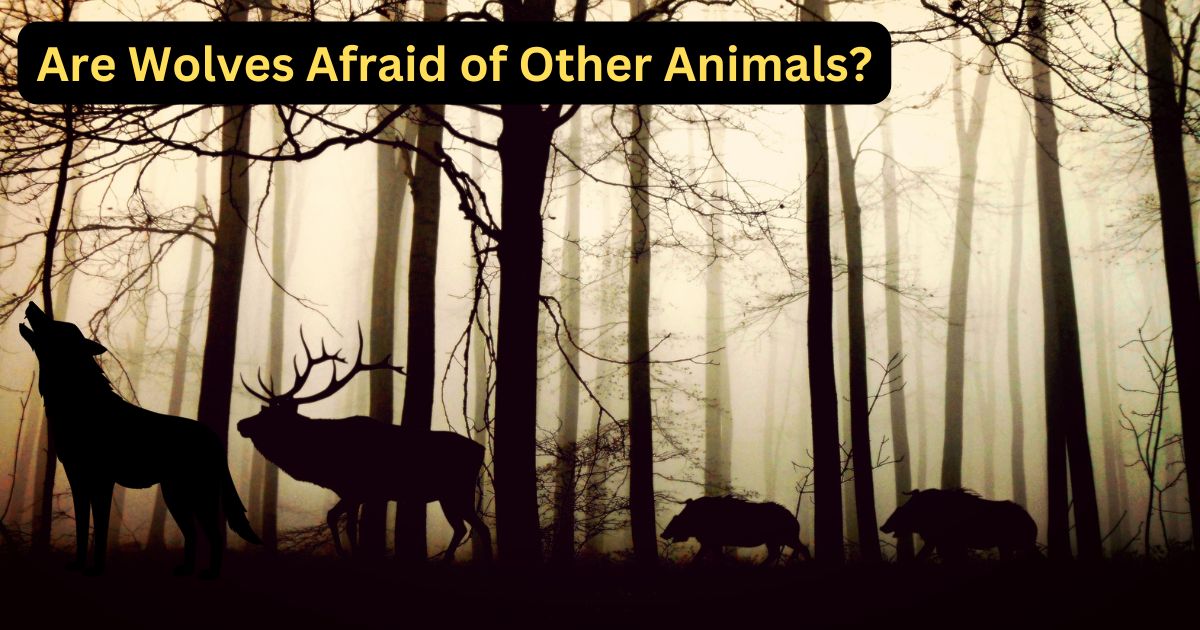
Are Wolves Afraid of Other Animals?
Wolves are clever creatures, and I’ve realized they regularly avoid direct battle with large predators unless vital.
The Interaction Between Wolves and Large Predators
Wolves generally tend to steer clean of confrontations with larger animals like bears or tigers. I’ve determined that they prefer to hunt in packs to deter those larger threats.
When searching by myself or in smaller businesses, wolves are more cautious, avoiding risky predators.
Do Wolves Fear Bears, Cougars, or Other Predators?
Wolves aren’t necessarily “afraid” of these animals, but they may be careful. From what I have study, they usually avoid territories where larger predators are lively, unless they are in a sturdy %.
How Often Do Wolves Face Threats from Predators?
I’ve determined that it’s not commonplace for wolves to be hunted by way of other animals, however it does show up, specially while meals is scarce or territories overlap.
Seasonal Changes in Predation of Wolves
During sure times of the year, mainly when food is less to be had, huge predators like bears may additionally emerge as extra competitive in the direction of wolves. These seasonal adjustments make wolves more vulnerable to assaults.
Territory and Competition: What Makes Wolves Vulnerable?
Wolves are most at chance when they wander into regions managed by using large predators or when they’re separated from their percent. I’ve noticed that lone wolves, especially, are more likely to fall victim to large predators.
What Other Factors Contribute to Wolf Mortality?
| Factor | Description |
|---|---|
| Disease | Illnesses like rabies and distemper can weaken wolves, making them vulnerable. |
| Starvation | Lack of food during famine can lead to weakened wolves, increasing predation risk. |
| Natural Predators | Predators like grizzly bears, tigers, and other wolves can prey on weakened wolves. |
| Environmental Challenges | Severe weather, natural disasters, and habitat loss increase wolf mortality. |
| Human Encroachment | Expansion into wolf habitats forces wolves into unfamiliar and dangerous territories. |
Beyond herbal predators, I’ve discovered that wolves also face different threats like sickness, starvation, and environmental challenges.
Disease, Starvation, and Natural Enemies of Wolves
Diseases including rabies or dog distemper can weaken wolves, making them more liable to attacks through predators. Additionally, I’ve examined that in times of famine, wolves may come to be weakened, increasing the likelihood of predation.
Environmental Challenges that Put Wolves at Risk
Natural failures, severe climate, and human encroachment on their habitats also can lead to a growth in wolf mortality.
When wolves are forced to transport into unfamiliar territories, they are much more likely to encounter new predators and other dangers.
FAQs About What Animals Hunt Wolves?
Can a Bear Kill a Wolf?
Yes, bears can kill wolves, in particular whilst competing for food or throughout territorial disputes.
Do Wolves Attack Each Other?
Yes, wolves from exclusive packs may also combat over territory, and those fights can be deadly.
Are Tigers a Threat to Wolves?
In regions wherein wolves and tigers percentage habitats, tigers can prey on wolves, though these encounters are rare.
Do Cougars Hunt Wolves?
Cougars don’t normally hunt wolves, but they had been recognized to kill them all through opposition over food or territory.
What Happens When Wolves Encounter Humans?
Wolves generally tend to keep away from humans, but human interest together with looking and habitat destruction can affect wolf populations.
Do wolves assault and kill bears?
From what I’ve found, wolves usually avoid bears, but they’ll assault in packs to protect their territory or younger. However, they rarely control to kill bears because of the bear’s electricity and length.
Can wolves protect themselves against predators like tigers or cougars?
Wolves depend on their percent to protect themselves, and I’ve discovered that during companies, they are able to fend off predators like cougars.
However, in relation to larger predators like tigers, wolves generally don’t stand a risk, specifically after they’re by myself.
What role do humans play in wolf predation?
I’ve found out that human beings indirectly reason extra wolf predation through hunting prey animals, shrinking wolf habitats, and pushing wolves into territories with more predators.
Are wolves much more likely to attack if their territory is threatened?
Yes, I’ve found that wolves grow to be aggressive if their territory is invaded with the aid of other animals, even different wolf packs. This often leads to lethal confrontations.
Conclusion
Wolves are powerful animals, but even they may be no longer without herbal predators. Grizzly bears, cougars, tigers, and even different wolves can pose threats, particularly while food is scarce or territories overlap.
Human impact has additionally shaped how frequently wolves face these risks. By know-how the complicated relationships between wolves and their predators, I’ve gained a deeper appreciation for the stability of nature within the ecosystems wolves inhabit.


